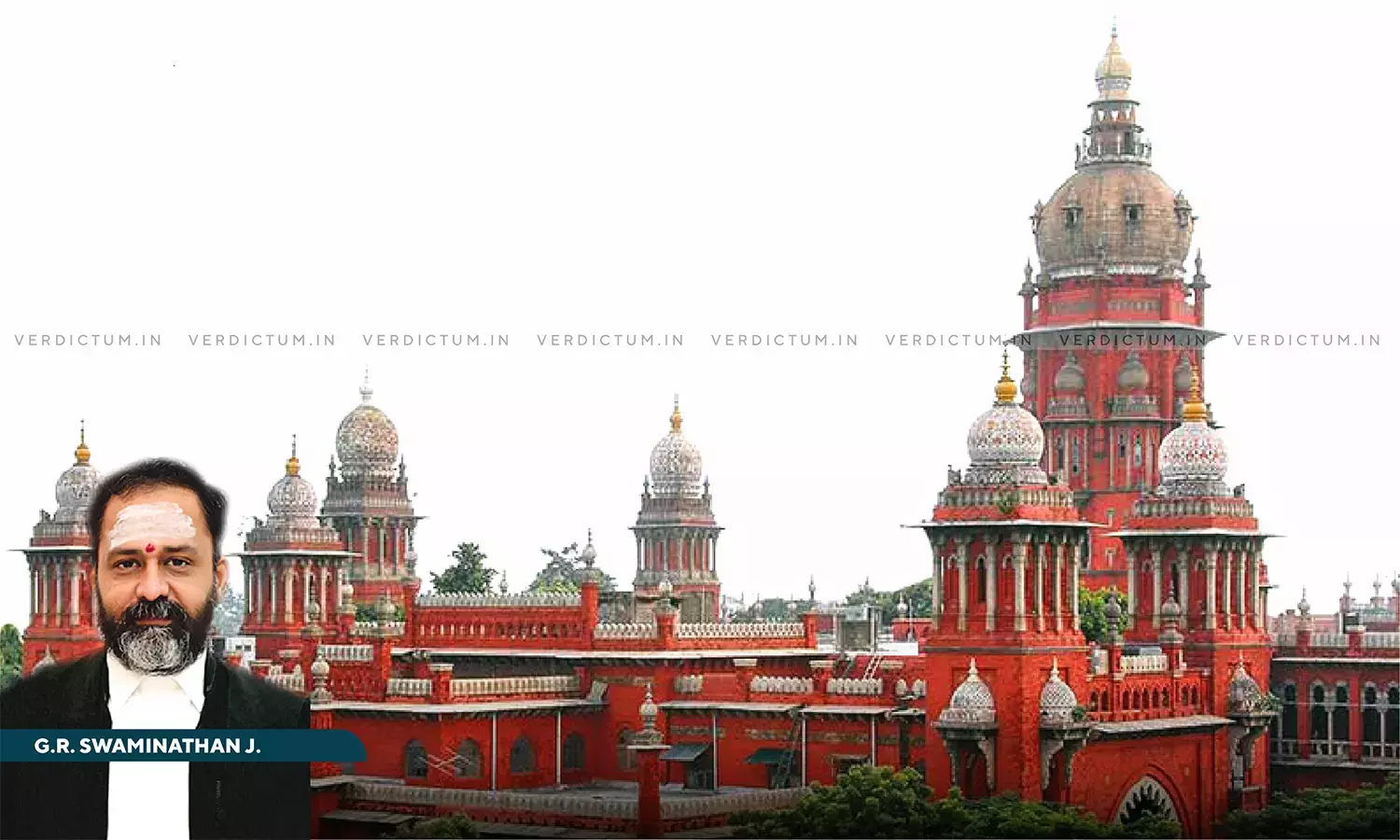Mother Can Give Her Illegitimate Child In Adoption Without Biological Father's Consent: Madras HC
The Madras High Court observed that a mother, who is a natural guardian of a Hindu minor illegitimate boy, is competent to give her biological child in adoption without the consent of the biological father.
The Bench stated that the marital status of a woman is not a determining factor in ascertaining whether she could give her child in adoption or not. The Bench explained that the proviso to sub-section (2) of Section 9 of the Hindu Adoptions and Maintenance Act, 1956 (HAMA) did not envisage obtaining the consent of one's spouse, if alive.
A Single Bench of Justice G.R. Swaminathan observed, “Section 6 of the Hindu Minority and Guardianship Act, 1956 had clarified the legal position. On the Act coming into force, the mother of the illegitimate minor child alone is the guardian of his person and property. Therefore, is competent to give her biological child in adoption. The proviso to Section 9(2) of the Act will kick in only if the father is around to claim paternity over the child. In this case, the father has not even been identified. K has not done so probably because that will expose him to prosecution under POCSO Act, 2012.”
Advocate T. Muhilan represented the petitioner, while G.A R. Raghavendran appeared for the respondents.
The child’s mother was a minor when she conceived the male child born out of an illicit relationship and had wished to give the child up for adoption. The petitioner, along with his wife, came forward to adopt the child. However, their deed of adoption was refused registration by the Sub-Registrar on the grounds that the mother had attained majority and was not married at the time of the adoption.
The Court stated that such a refusal “betrays the patriarchal mind set of the registering authority. The underlying assumption is that an unmarried woman above the age of 18 years cannot give her biological child in adoption,”
The Court explained that the proviso to Section 9(2) of the HAMA kicks in only when the father is around to claim the paternity over the child. The Court explained that since the father had not even been identified, it could probably be because it would have exposed him to prosecution under the POCSO Act, 2012.
“One should therefore proceed on the premise that the biological father of the child is not available…K cannot possibly obtain consent from the natural father of the child. Therefore, the proviso to sub-section (2) of Section 9 of Hindu Adoptions and Maintenance Act, 1956 cannot apply,” the Court stated.
Consequently, the Bench set aside the impugned order and directed the registering authority to register the adoption deed.
“It is possible that a child may be born through live-in relationship or on account of illicit intimacy. The mother may like to give the child in adoption in order to ensure proper future for the child. The father may have abandoned his child. He may not be around to assume responsibility. The reason set out in the impugned order is patently unsustainable,” the Court held.
Accordingly, the High Court allowed the petition.
Cause Title: Ashok Kumar v. The Inspector General of Registration & Ors.












